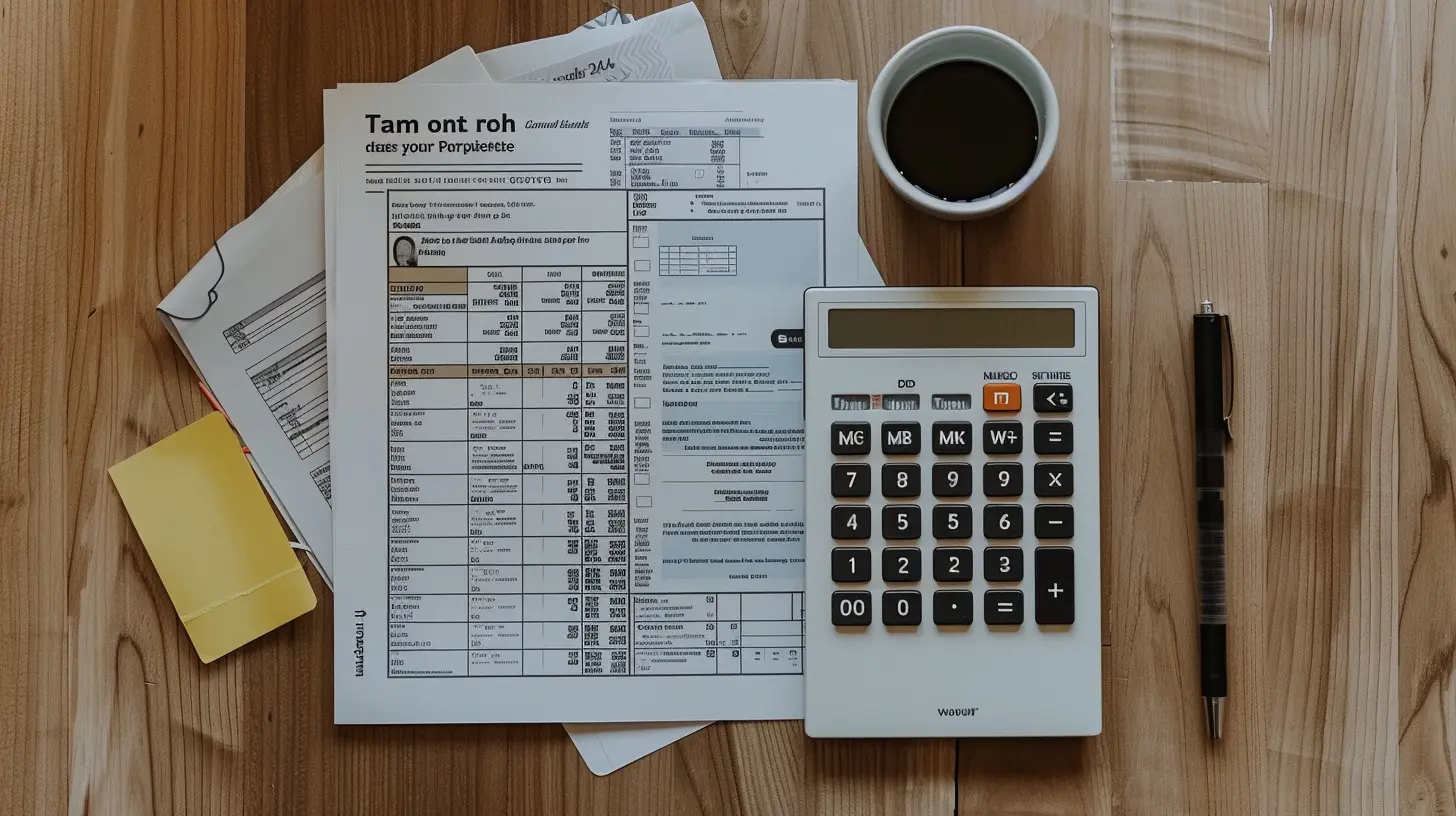Planning for Next Year’s Tax Refund: Proactive Strategies
12 June 2025
Alright, folks. Let’s talk about that beautiful moment when you open your bank account and—bam!—your tax refund just landed. Sweet, sweet government money that you technically overpaid, but hey, who’s complaining?*
Here’s the deal though: that magical refund doesn’t just happen by accident (unless you’re still using the “cross-your-fingers-and-pray” tax strategy). If you want to make next year’s refund the stuff of legends—or at least enough to fund a guilt-free shopping spree—we’ve got to talk planning. That’s right. Grimace all you want, but proactive tax planning is the secret sauce of financial adulting.
So grab a cup of coffee (or that third iced latte of the day), and let’s walk through some fun, quirky, and downright helpful strategies to amp up your tax refund game for next year.
Why You Should Even Care About Your Tax Refund
Let’s get this out of the way: your tax refund is not a bonus. Sorry to burst the bubble. It’s more like getting your own money back because you gave Uncle Sam an interest-free loan all year. Generous, right?But… it's also the perfect moment to fix some financial oopsies, stash some cash, or, you know, finally buy that air fryer you convinced yourself was a need. Planning now means you can walk away with a refund check that says, “I know what I’m doing” instead of “Oops, that was luck.”
1. Adjust Your Withholding (Yes, That W-4 Thing)
Let’s start by confronting the dusty W-4 form you probably haven’t touched since you started your job six years ago. That little piece of paper (or PDF) controls how much tax your employer withholds from each paycheck.If you tend to get a ginormous refund, you’re overpaying your taxes all year. If your refund is smaller than the last slice of pizza at a party, you might owe money instead of getting any back.
Pro Tip:
Use the IRS Tax Withholding Estimator (yes, it’s actually kind of helpful) to figure out what your withholding should look like. Adjust your W-4 accordingly. Say it with me: “No more surprises in April.”
2. Max Out Pre-Tax Contributions
Want to shrink your taxable income and boost your refund? Contribute like your refund depends on it—because it kinda does.The Not-So-Secret Weapons:
- 401(k): Every dollar you contribute is a dollar Uncle Sam can’t tax right now. Future You will thank you (and hopefully be sipping cocktails on a beach).- Traditional IRA: If your employer doesn’t offer a retirement plan or you’re self-employed, this is your jam.
- HSA (Health Savings Account): If you have a high-deductible health plan, this triple-tax-advantaged beauty lets you save on taxes when you contribute, grow your money tax-free, and withdraw without taxes for qualified expenses.
💡 Translation: You’re legally dodging taxes like a financial ninja. What's not to love?
3. Stack Up Those Tax Credits (They're Like Coupons... But Better)
Tax credits are the royalty of the tax world. Unlike deductions (which reduce taxable income), credits chop off your tax bill directly. Yes, they’re the Beyoncé of tax strategies.Crowd Favorites:
- Child Tax Credit: Got little humans running around? They could bring you up to $2,000 each. Not bad, right?- Earned Income Tax Credit (EITC): If your income is on the lower end, this credit could be your BFF.
- Saver’s Credit: Low-to-moderate income and saving for retirement? That’s tax credit material.
Tip: Keep good records now or face the “I-swear-my-dog-ate-my-receipts” situation during tax season.
4. Track Every Expense Like a Hawk (Or at Least Like a Semi-Responsible Adult)
If you’re self-employed, a side hustler, or have income outside your 9-to-5, you need to get real cozy with expense tracking. That morning latte might not be deductible (shame), but your new laptop for business, mileage, or even your home office? That’s refund gold.Tools That Don’t Suck:
- QuickBooks Self-Employed: Intuitive and worth the price.- Expensify: Snap pictures, track mileage, and spit out reports.
- Pen and paper: For those who live like it's 1987—but hey, whatever works.
5. Charitable Donations: Give, and Ye Shall Receive (a Deduction)
Got a heart of gold? Good news. Donations to qualified charities are tax-deductible if you itemize. Just keep records. No one’s letting you write off that used toaster you gave your cousin.Pro Tip:
Don’t just give cash. Donating stuff—clothing, electronics, even cars—can score you deductions too. Just make sure it's to a qualified organization (and not your friend’s “charity” eBay business).6. Sell Investments Strategically (AKA Tax-Loss Harvesting)
If you play in the stock market, there's a tax game within the money game. Selling investments that have lost value to offset gains from winning ones is called—drumroll, please—tax-loss harvesting.How It Works:
- Lose $1,000 on Stock A? Use that to cancel out the $1,000 you gained on Stock B.- Still in the red after offsetting? Use up to $3,000 to reduce ordinary income. The rest rolls forward. Future tax refunds will thank you.
This move is like turning lemons into lemonade. Or into a tax refund smoothie. Choose your metaphor.
7. Keep an Eye on Life Changes
Big life changes can make a mess of your taxes or unlock major refund magic.Watch Out For:
- Getting married (or divorced): Affects filing status.- Having a baby: Hello, tax credits!
- Buying a house: Mortgage interest is deductible if you itemize.
- Job changes: New job = new W-4 = time to reevaluate withholding.
Bottom line: Update your info in real time. Did you just change your relationship status on Facebook? Great. Now do it on your tax documents too.
8. Bunching Deductions (The Adult Version of Coupon Clipping)
If you normally fall just short of being able to itemize, consider “bunching” deductions. Basically, instead of spreading deductions across two years and missing the itemization threshold both times, cram them into one year.What to Bunch:
- Charitable donations- Medical expenses
- Property taxes
- Mortgage interest
It’s like binge-watching deductions. Get ‘em all in one year and enjoy the tax-saving drama.
9. Don't Forget the State Refunds
Many people zero in on their federal refund and forget their sweet ol’ state tax refund. State taxes can be just as complex (and generous) as federal returns, depending on where you live.State-specific Plays:
- Some states offer credits for renters- Certain education costs can be deducted
- Retirement income may be partially or fully excluded
Do your homework—or get a tax pro who speaks fluent “state return.”
10. Hire a Tax Pro (Or At Least Befriend One)
If your tax life is a little more “interpretive dance” than “clean, simple waltz,” you might need a tax professional. A good CPA or EA (Enrolled Agent) can find deductions you didn’t know existed and legally wrestle your tax bill down like a pro.Even just having a virtual consultation once a year can be a game-changer. Plus, they laugh at tax jokes, which is rare and oddly comforting.
Final Thoughts: Start Now and Your Future Self Will High-Five You
Tax refunds don’t have to be the result of random chance or end-of-year panic sessions with a calculator and a bottle of wine. A few adjustments here, a few strategy changes there, and you could land next spring with a refund that makes you feel like the world’s most fiscally responsible adult (just don’t wear socks with sandals, okay?).Give your future refund a glow-up by taking action now. Because the only thing better than money back… is more money back.
TL;DR: Your Refund Prep Cheat Sheet
- Tweak your W-4 like a tax-savvy boss- Max those pre-tax accounts (401(k), IRA, HSA)
- Hunt for credits like it's Easter
- Track all expenses—business or side hustle
- Donate and document it!
- Offset investment gains with losses
- Stay on top of life changes
- Bunch deductions if it makes sense
- Don’t forget state-level perks
- Consider a tax pro for the heavy lifting
Now go forth, plan smart, and make that next tax refund your best one yet. And hey—maybe this year, the refund pays for Taco Tuesday and a weekend getaway. You earned it.
all images in this post were generated using AI tools
Category:
Tax RefundAuthor:

Harlan Wallace
Discussion
rate this article
2 comments
Betsy Rocha
Great article! I appreciate the practical tips for maximizing tax refunds. Planning ahead truly makes a difference. Thank you!
June 17, 2025 at 5:00 AM

Harlan Wallace
Thank you for your kind words! I'm glad you found the tips helpful. Happy planning!
Gunnar Wade
Great tips! Planning for next year's tax refund can feel daunting, but with these proactive strategies, you're already ahead of the game. Remember, a little preparation can lead to big rewards! Keep up the good work, and happy tax planning!
June 15, 2025 at 3:08 AM

Harlan Wallace
Thank you! I'm glad you found the tips helpful. Happy tax planning to you too!


